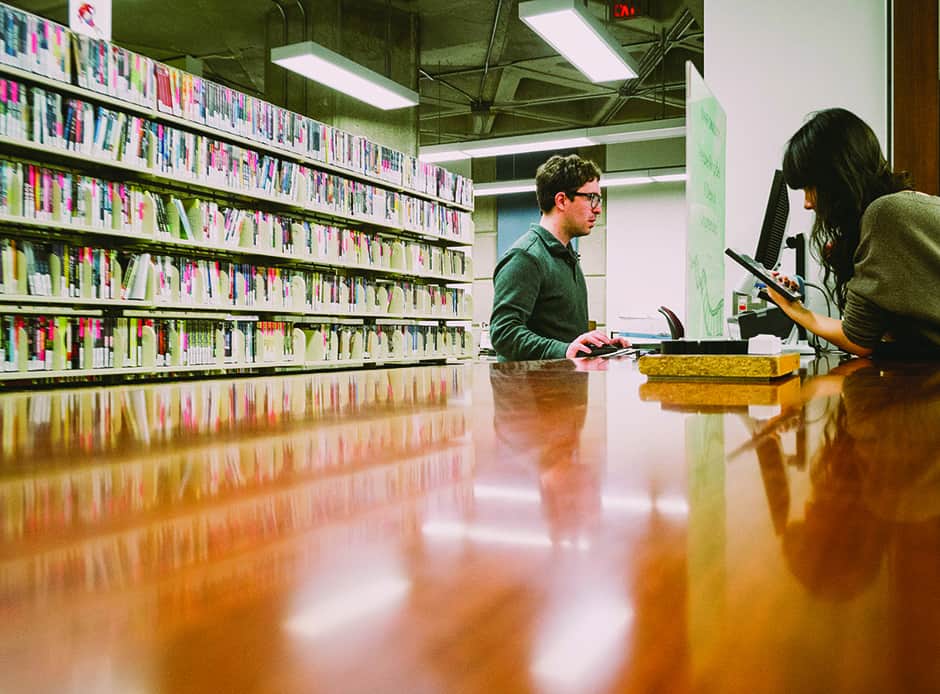As part of the University of Toronto’s annual participation in International Open Access Week students were invited to interact with an Alternate Reality Game (ARG) taking place in Robarts. Open Access Week seeks to promote unrestricted access to scholarly materials.
The University of Toronto Libraries’ (UTL) Scholarly Communications and Copyright Offices hosted the game between October 19 and 23. Both creators and players deemed ‘Open Robarts’ to be a huge success.
“We were looking to do something different than the previous years for the event and an alternate reality game was something that the library had never done before,” said Daniela Cancilla, UTL copyright outreach librarian.
The ARG consisted of a storyline about a conspiracy theory that something strange was occurring at Robarts.
“Players worked with this group of ‘investigators’ to discover what was happening at the library,” said Cancilla, describing the game. “As players got more involved with the game by exploring the services and departments of the library, they would discover that a secret society called the Vayika were recruiting members to help oppose a group who seek knowledge as a means of power.”
Winners of the game could choose to join the Vayika and become protectors of knowledge, join the Kambre as part of the conspiracy theorist group, or join the Danand as a default if they do neither, a group that seeks to maintain the status quo.
Cancilla said the inspiration for the game came from a web comic created by Toronto author Mark Foo and artist David Oxley, in which Robarts was featured.
“Our comic is about a reporter who is looking into Toronto’s ‘ugly’ brutalist buildings and finds a conspiracy hiding a dark secret beneath the city,” explained Foo. He found that his experience writing the ARG was similar to writing the comic. “If you put an interesting lens on history, then start digging, you’ll find all kinds of coincidences and events that just fit. After that, it’s a matter of lining them up [in] a way so people will pay attention and hopefully find [it] interesting,” he added.
Oxley explained that his ‘head-first obsession’ with escape room games made learning about ARGs an easy transposition as there is a large crossover between the two. “Using the library’s actual programmers, printers and cataloging was imperative to create the idea that this game had a foot within our everyday reality,” he said.
According to Cancilla, the game achieved an unprecedented level of popularity , gaining 10,552 hits from people all over the world.
Eli Goodfriend, a winner and remote gameplayer, said that he enjoyed the game and praised its design. “It was fantastic, the game designers really did a good job of making play fun for remote players too. Secret societies are always a good theme, and the overall message about open access to information was well done.”
Cancilla hoped that that the game would make library events seem more relevant and fun to students. “Even if a few people are more aware about open access and what it could do for them in their scholarship, it would be worth it.”
Due to the success of the game, Cancilla mentioned the possibility of bringing it back: “we were so pleased at how receptive people were towards the game. It’s possible that we might bring it back.”


